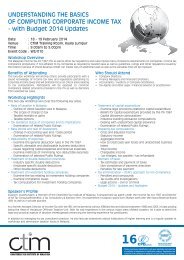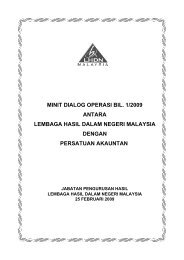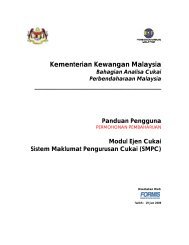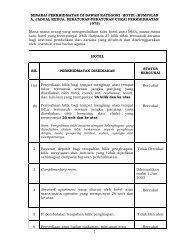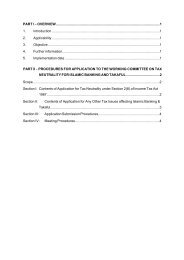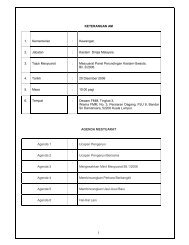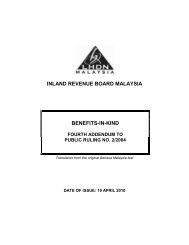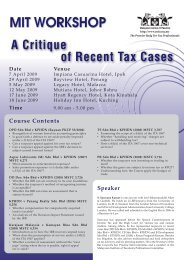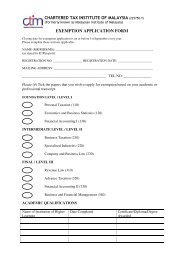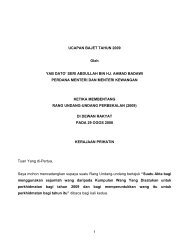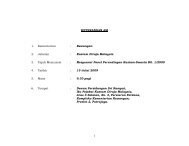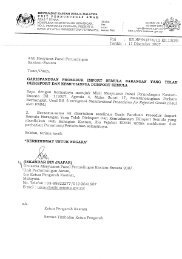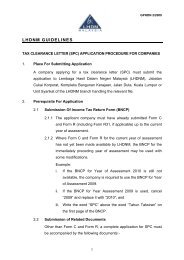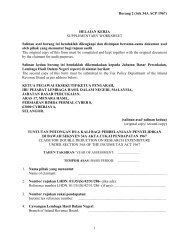The English Version of IRB Tax Audit Framework 2013
The English Version of IRB Tax Audit Framework 2013
The English Version of IRB Tax Audit Framework 2013
You also want an ePaper? Increase the reach of your titles
YUMPU automatically turns print PDFs into web optimized ePapers that Google loves.
TRANSFER PRICING<br />
INLAND REVENUE BOARD<br />
AUDIT FRAMEWORK<br />
MALAYSIA Effective Date: 01 April <strong>2013</strong><br />
___________________________________________________________________<br />
iii.<br />
Section 82 <strong>of</strong> the ITA requires every person to keep<br />
and retain sufficient records when carrying on a<br />
business in order to enable the business to be<br />
readily ascertained <strong>of</strong> its pr<strong>of</strong>it or loss. As stipulated<br />
in the Public Ruling Nos. 4/2000, 5/2000 and 6/2000,<br />
the meaning <strong>of</strong> “records and documents” includes<br />
the following:<br />
a) Books <strong>of</strong> accounts for recording receipts and<br />
payments or income and expenditure;<br />
b) Financial Statement;<br />
c) Invoices, vouchers, receipts and other<br />
documents that are required to verify entries<br />
recorded in the books <strong>of</strong> accounts;<br />
d) Documents, objects, materials, articles and<br />
items handled and stored in an electronic<br />
medium; and<br />
e) Any other record that may be specified by the<br />
DGIR.<br />
7.1.3.3 If the document required in relation to the transaction <strong>of</strong><br />
business in Malaysia is being kept outside <strong>of</strong> Malaysia by<br />
a related company, the taxpayer is required to submit the<br />
document within the specified period.<br />
7.1.3.4 Failure to keep sufficient records is an <strong>of</strong>fence under<br />
section 119A <strong>of</strong> the ITA. In relation to this, the audit <strong>of</strong>ficer<br />
may apply alternative approaches or indirect methods for<br />
the purpose <strong>of</strong> ascertaining whether the appropriate<br />
amount <strong>of</strong> income has been reported.<br />
7.1.4 <strong>Audit</strong> Timeframe<br />
<strong>The</strong> time required to complete an on-site examination <strong>of</strong> records<br />
is between 4 to 5 days. However, the audit timeframe may be<br />
extended depending on the following factors:<br />
7.1.4.1 <strong>The</strong> size and complexity <strong>of</strong> the business transactions;<br />
6



